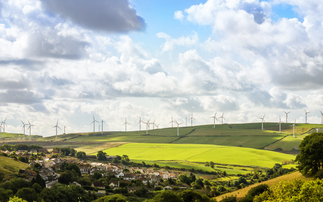Oil-rich nation also commits to generating 27 per cent of its electricity from renewable sources
Algeria has become the latest country to unveil its greenhouse gas (GHG) emissions reduction target, after filing its Intended Nationally Determined Contribution (INDC) ahead of December's Paris Climate Summit.
The North African country pledged to curb carbon emissions by at least seven per cent compared to business-as-usual (BAU) levels by 2030, but that could increase to 22 per cent depending on the level of international financial support it receives.
The INDC also confirmed that the oil-rich nation will aim to generate 27 per cent of its electricity from renewable sources by 2030, and cut its energy consumption by nine per cent through initiatives such as a national housing insulation programme.
In addition, the country stated it will convert at least one million private vehicles and 20,000 buses from diesel to petrol powered.
The nation, which is increasingly vulnerable to the effects of manmade climate change, such as desertification and land degradation, also said it would develop a national adaptation plan to boost its climate resilience.
The INDC claims that the country will establish a new monitoring mechanism with early warning systems for managing extreme weather events, as well as amending its institutional and regulatory framework to improve its ability to tackle climate change.
See our interactive map showing what countries have pledged so far for a deal in Paris
In related news, Indonesia last week outlined a draft INDC pledge to curb its emissions by 29 per cent by 2030, although it did not state which year would serve as a baseline.
The Guardian reported that the new target is a revision of its previous commitment to cut emissions by 26 per cent by 2020 from BAU levels.
Indonesia is one of the world's largest GHG emitters, and said it was still determining the specifics of the commitment but that investment in renewable energies and cutting down on deforestation would likely play a part.
This article was published as part of BusinessGreen's Road to Paris Hub, hosted in association with PwC.










